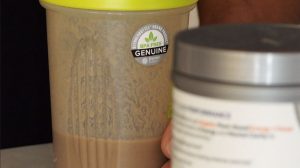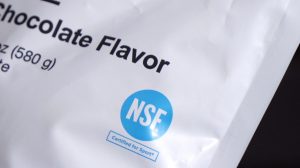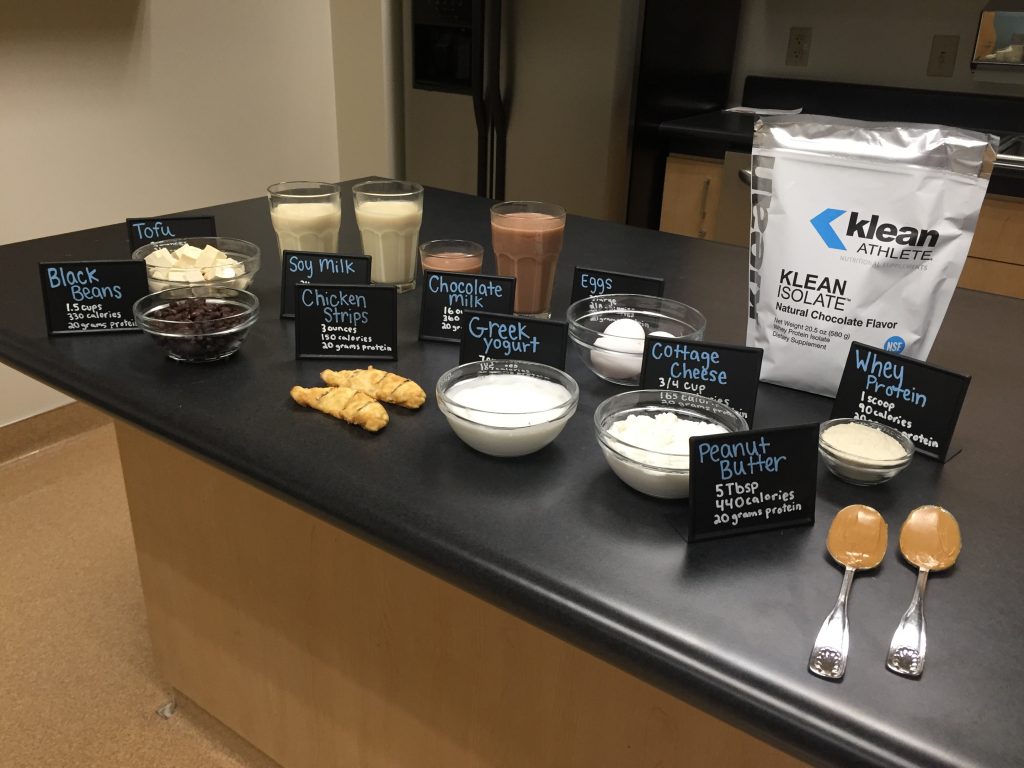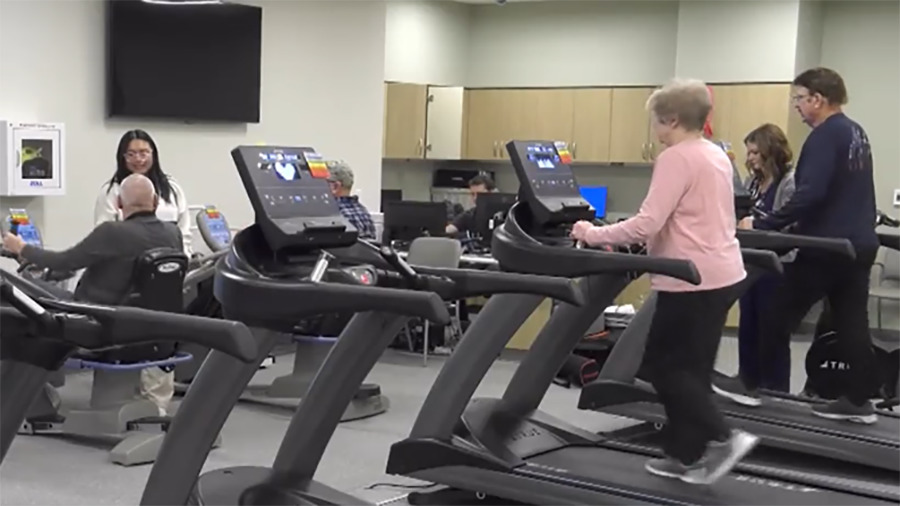Choosing The Right Protein Powder For You
Aug 17, 2018, 7:53 PM | Updated: 7:55 pm
LEHI, Utah – Many people know protein is an essential component for a healthy body, but a wide selection and abundant advertising makes buying protein powder a tough choice.
Alex and Mary Malie are not only husband and wife, but also boxing partners. They love working out together.
“It’s just like 100 percent focus. I mean, I’m like the sweatiest guy there,” Alex Malie said.

Alex Malie said he drinks a protein shake after every time he works out to repair and rebuild his muscles.
They drink protein powder shakes as part of their exercise routine.
“After my workout, I’ll go home and have a protein shake because that will help repair, rebuild and recover and help the muscles feel full again,” he explained.
His wife, Mary Malie, said she also drinks them because it’s convenient.
“It’s nice after a long workout if I’m headed to work or (if) I don’t want a heavy meal before bed,” she said.
At first, the couple had no idea where to start.
“In the magazine, they say, ‘Hey! You need protein’ and I was like ‘Okay, cool.’ I didn’t understand what it was for or why I was taking it or how I should take it,” he said.
Drinking a whey-based protein powder started making him feel sick.
“As soon as I took it, my stomach was bloated and it was just a horrible feeling,” he said.
Finally, they tried a plant-based protein supplement. Everything changed.
“It works really well for my body. I’ve tried whey and soy, which is great for other people. For me it didn’t work,” she said.
After a lot of research and trial and effort, the Malies said it is important to find what works for your body.
“If you are feeding your body these ingredients that aren’t really like food, it’s not going to process it and give you what you’re thinking you’re going to get,” she explained.

Intermountain Healthcare’s Ashley Hagensick encourages people to look for protein vetted by a third party like NSF.
Since supplements are not Food and Drug Administration-regulated, Intermountain Healthcare’s Intermountain TOSH sports dietitian Ashley Hagensick encourages athletes to look for protein powder certified by a third party like the National Sanitation Foundation or Informed-Sport.
“NSF actually goes to the facility where the supplements are produced and makes sure they are completely safe and completely clean,” Hagensick said.
They also ensure the product actually contains what the package claims to include instead of just rice flour or even worse drugs like methamphetamines, steroids, and testosterone.
Hagensick said having protein in such a simple form like powder makes it easy to overdo.
“You can put some strain on your kidneys for sure especially if you are not getting enough water with it,” Hagensick warns.
Intermountain’s TOSH dietitian Jenna Ellis said while protein shakes are convenient, eating protein from whole food sources is best.
For example, Ellis referenced a cup and a half of black beans.
“Not only does it have 20 grams of protein, but it’s also full of fiber, vitamins and minerals,” she said.
Ellis said supplemental protein powder can get expensive and whole foods offer a lot of nutritional value in addition to just protein.
“You’re getting a lot more bang for your buck when you are using these food sources,” she said.

Intermountain Healthcare experts said getting protein from whole food sources is best since food provides added nutritional value like fiber, vitamins and minerals.
Alex and Mary Malie also said whole foods gives them the uppercut. Mary Malie enjoys eating lots of fish, while Alex Malie said his body performs better on red meats.
Ellis said on average people should eat about 0.8 grams of protein per kilogram of body weight.
Intermountain Healthcare’s Whole Food Suggestions:
- Greek Yogurt – 7 ounces, 107 calories, 20 grams protein
- Cottage Cheese – ¾ cup, 165 calories, 20 grams protein
- Peanut Butter – 5 tablespoon, 440 calories, 20 grams protein
- Tofu – 9 ounces, 210 calories, 20 grams protein
- Black Beans – 1.5 cups, 330 calories, 20 grams protein
- Soy Milk – 24 ounces, 300 calories, 20 grams protein
- Chocolate Milk – 16 ounces, 360 calories, 20 grams protein
- Chicken Strips – 3 ounces, 150 calories, 20 grams protein
- Eggs – 3 large, 234 calories, 20 grams protein
















